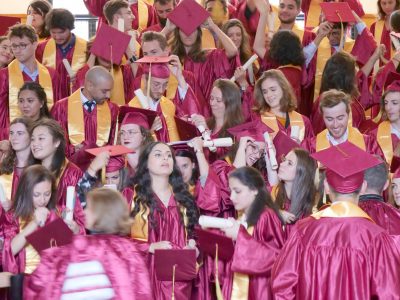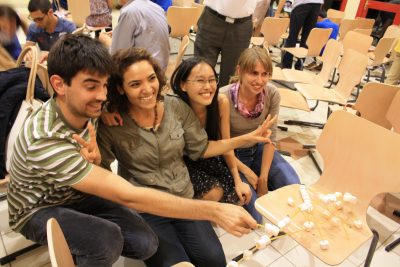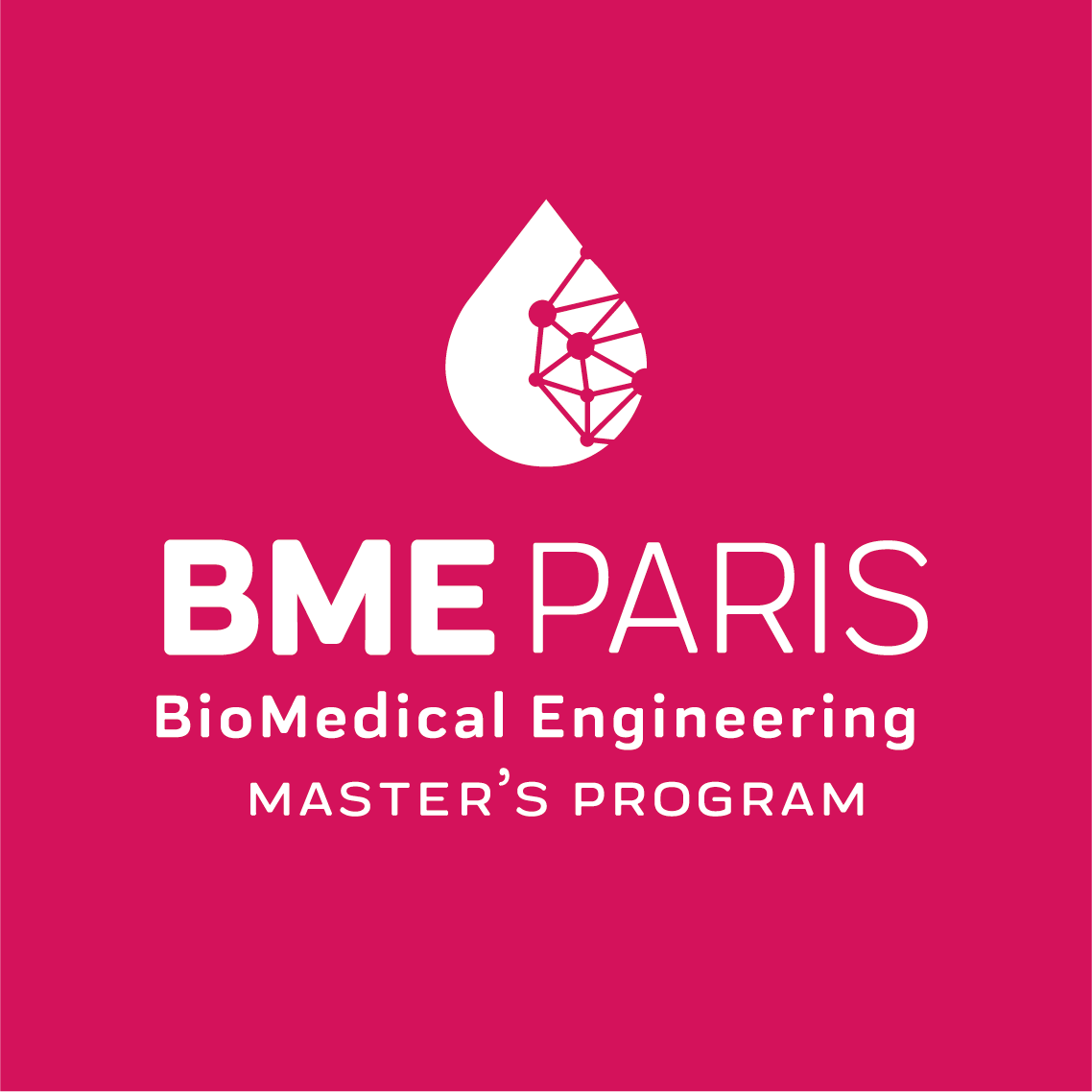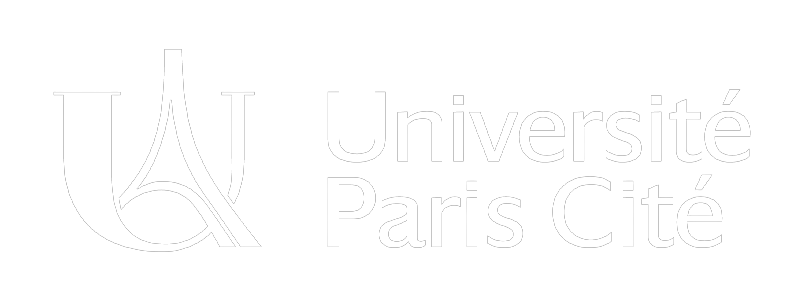BioMaterials and BioDevices
BioMaterials and BioDevices (BioMAT)
Biomaterials research and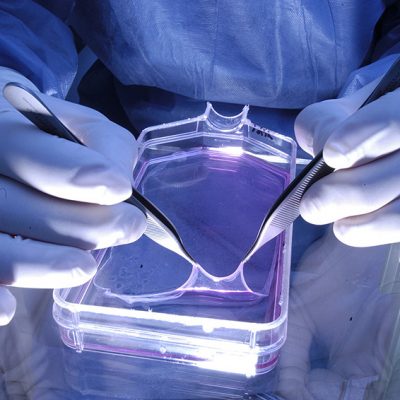 development currently not only encompass, but extend far beyond the field of prosthetics design. Most biomedical technologies rely today on the design of materials and complex devices able to interact in controlled and specific manners with living systems. The application scope is extremely challenging and diversified including tissue engineered products for regenerative medicine, miniaturized devices for diagnosis as well as model bioactive materials for biomedical research.
development currently not only encompass, but extend far beyond the field of prosthetics design. Most biomedical technologies rely today on the design of materials and complex devices able to interact in controlled and specific manners with living systems. The application scope is extremely challenging and diversified including tissue engineered products for regenerative medicine, miniaturized devices for diagnosis as well as model bioactive materials for biomedical research.
The BioMAT track provides scientists, engineers, and medical students with the wherewithal to face the numerous challenges of biomaterials and biodevices R&D; how to carry out innovative and fruitful research with the appropriate methods and ethical considerations, how to collaborate and interact in projects at the interface among materials and biomedical science, and medicine. It is accessible to engineering and life-science students (materials science, physics, chemistry, medicine, pharmacy, dentistry, and biology) preparing for career paths in academic research or industrial R&D environments.
The program relies on a rich combination of high-level lectures, conferences and exchanges with invited experts and interdisciplinary group projects. From all these experiences, the students will learn how to apply their skills on health-related applications ranging from implant and tissue engineering through the modelling and characterization of biological materials to the design of devices for diagnosis.
Course Selection
For Semester 3: Besides the BME conferences and interdisciplinary week, the BioMAT program starts with a set of four core teaching units providing a broad overview of state-of-the-art knowledge of biomaterials science, as well as anatomy and research methodology. These units are completed by upgrade courses in biology or mechanics to be chosen depending on the initial background. In-depth focus on biomaterials research is developed in a syllabus of ten teaching units. Each student selects a set of at least four teaching units: two from the set “General concepts for biomaterials and biodevices design” and two from one of the subtracks “Tissue reconstruction and regenerative medicine” and “Nano- and micro-systems medicine”.
For Semester 4: Two units put the training in a broader perspective with a business plan workshop and a lecture on ethics. Most of the semester is then devoted to the research internship which lasts between 5 to 6 months.
Additional courses can be chosen. A pedagogical commission of lecturers and researchers assists students and helps them to devise a personalized program consistent with their individual backgrounds and professional objectives.
Semester 3
Mandatory courses
Course Title: Open Your Mind Seminars
Description:
Key words:
Total number of hours: Number of ECTS: Semester
Mandatory course ☐ Optional course ☐
Prerequisites/skills needed:
Teaching methods and activities:
Location:
Course supervisor:
Course Title: Interdisciplinary week
Description:
Key words:
Total number of hours: Number of ECTS: Semester
Mandatory course ☐ Optional course ☐
Prerequisites/skills needed:
Teaching methods and activities:
Location:
Course supervisor:
Course Title: Research Methodology
Description: The objective of this course is to introduce students to research methodology to use in their master’s thesis work. This module consists of two main sections. The first section introduces the purpose, processes and methodologies of research projects. It aims at increasing student knowledge of academic standard practice (using bibliography tools, writing a research introduction and presenting scientific work orally). The second section focuses on basic statistical tools for quantitative research and more specifically on statistical hypothesis testing.
Key words:
Total number of hours: 24 Number of ECTS: 3 Semester 3
Mandatory course ☒ Optional course ☐
Prerequisites/skills needed: Basics in statistics. Prior to the lecture, students are asked to complete an online refresher course on statistics. A 90 minutes evaluation is done during the first lecture of the course unit to assess that the pre-requisites for statistical hypothesis testing have been met, and to adapt the contents of the following sessions accordingly.
Teaching methods and activities: Lab sessions (TP), lectures (CM), practical sessions (TD)
Location: Arts et Métiers Institute of Technology
Course supervisor: Pierre-Yves ROHAN (assistant professor)
Course Title: Practical training: Hands on state-of-the art tech
Description: The aim of this module is to provide students the opportunity to carry out hands on state-of-the-art research during one week. The practical work is conceived as an illustration of the lectures, but also as a preparation for the laboratory experimental internship of the second trimester. Most of the practical work comes from and is based on research carried out in the host laboratories. The module is organized in 5 separate series each comprising 5 consecutive practical sessions of 4H each (20H in total). Each group of students (including 4 students) chooses and carries out a single series of 5 consecutive sessions, concluded by a restitution session in front of all students.
Series 1: Tissue engineering assisted by magnetic manipulation and MRI monitoring.
Series 2: Image-guided drug delivery and photo-activated anti-tumor therapy via extracellular vesicles from stem cells.
Series 3: Experimental Surgery and Small Animal Imaging in fistula therapy using a thermoresponsive hydrogel
Series 4: Physical Embryology: how physical triggers modulate the dynamics of organogenesis in chicken embryo
Series 5: Mechanics of development: physiology, mechanical and drug effects on the digestive peristatic movement in the developing embryo enteric nervous system.
Key words: Tissue engineering, nanomedicine, nanoparticles, MRI, imaging, drug delivery, morphogenesis, physical stimulation, experimental surgery, extracellular vesicles
Total number of hours: 20 Number of ECTS: 3 Semester 3
Mandatory course ☒ Optional course ☐
No prerequisites/skills needed.
Teaching methods and activities: Lab sessions (TP)
Location: université paris cité, Campus Saint-Germain-des-Prés, HEGP MRI platform
Course supervisor: Florence GAZEAU (doctor) and Amanda WILHELM (doctor)
Course Title: Fundamentals in biomaterials science and engineering
Description: This lecture provides basic knowledge about the key-concepts that need to be controlled for the design of materials for in vivo biomedical applications. It is composed of 9 classes organized into three parts: Part 1: General overview of the field of materials science and technology for medical applications and basic concepts; Part 2: Fundamental understanding of the phenomena into play at the interface between materials and a living system. For each phenomena, we also evoke the current associated scientific and medical challenges and some examples of the strategies to make improved functional biomaterials; Part 3: A series of introductory lectures by experts focusing on the specificities of the main classes of materials used in biomedical applications, namely metals, ceramics, polymers and hydrogels.
Key words: Biomaterials, Implant design, Biocompatibility, Host reaction
Total number of hours: 24 Number of ECTS: 3 Semester 3
Mandatory course ☒ Optional course ☐
No prerequisites/skills needed.
Teaching methods and activities: Lectures (CM)
Location: Arts et Métiers Institute of Technology
Course supervisor: Laurent CORTE (professor)
Course Title: Anatomy of the Musculo-skeletal System
Description: This course provides basics in functional anatomy focusing on the osteoarticular and muscular systems and their links with the movement. 6 anatomical regions are presented: foot and ankle, hip, knee, spine, elbow and wrist, shoulder. Clinical issues in the orthopaedic field such as prosthetic fitting are also presented.
Key words: Functional anatomy, osteoarticular system, muscles
Total number of hours: 24 Number of ECTS: 3 Semester 3
Mandatory course ☒ Optional course ☐
No prerequisites/skills needed.
Teaching methods and activities: Lectures (CM)
Location: Arts et Métiers Institute of Technology
Course supervisor: Philippe WICART (professor)
Upgrade courses
3 ECTS to be picked among
Course Title: Basics in Tissue and Cell Biology
Description: This lecture is for scientific students who didn’t receive a biological/medical knowledge. The classes provide a fundamental knowledge about the basics in biology. The lecture is composed of 4 parts:
Part 1 – General principles of cell and molecular biology:
– Cell structures and molecular components of the cell (nucleic acids, proteins, lipids, sugars)
– Cell proliferation, differentiation and death
– Regulation of gene expression
– Introduction to cell metabolism
– Interactions between the cell and its environment
Part 2 – Basic techniques of cell and molecular biology:
– Cell biology: – cell culture / – microscopy
– Molecular biology: – computer-assisted sequence-analyses (nucleic acids, proteins) /- extraction and analyses of nucleic acids, proteins and of their interactions /- DNA cloning, mutagenesis, transfection
Part 3 – Mechanical stress and cell signaling in cartilage and intervertebral disc
Part 4 – Cartilage cell biology and bioengineering
Key words: Cell biology
Total number of hours: 24 Number of ECTS: 3 Semester 3
Mandatory course ☒ Optional course ☐
No prerequisites/skills needed.
Teaching methods and activities: Lectures (CM)
Location: Arts et Métiers Institute of Technology
Course supervisor: François RANNOU (PU-PH) and Caroline CHAUVET (associate professor)
Course Title: Advanced in Tissue and Cell Biology
Description:
Key words:
Total number of hours: Number of ECTS: Semester
Mandatory course ☐ Optional course ☐
Prerequisites/skills needed:
Teaching methods and activities:
Location:
Course supervisor:
Course Title: Basics in Continuum Mechanics
Description: This lecture provides basic knowledge about the key-concepts of the basic principles on continuum mechanics and on the mechanical behaviour of mechanical structures. The UE is divided into 6 classes including tutorials and lab work. Class 1: Strains ; Class 2: Stresses and equilibrium ; Class 3: Tutorial in 1st and 2nd class; Class 4: Constitutive law and mechanical tests ; Class 5:Lab work on compression test ; Class 6: Isotropy versus Anisotropy, viscoelasticity, plasticity. Grading takes into account a report on the lab work (30%) and a final exam (70%).
Key words: Material behaviour, mechanical structure, constitutive law, mechanical tests
Total number of hours: 23 Number of ECTS: 3 Semester 3
Mandatory course ☒ Optional course ☐
Prerequisites/skills needed: M1 in physics, chemistry, biology or biomedical sciences or medical science (medicine, pharmacy).
To compute the stress and strain in a mechanical structure. To choose a mechanical law for a given material. To set up a mechanical test and treat the data to identify the parameters of the mechanical law. To critically analyze a scientific article in the field of material behavior.
Teaching methods and activities: lab sessions (TP), lectures (CM), practical sessions (TD)
Location: Arts et Métiers Institute of Technology
Course supervisor: Rachele ALLENA (associate professor)
Course Title: Modeling and Simulation in Biomechanics
Description: This lecture provides basic knowledge about the key-concepts of the basic principles of the finite element method (FEM) for the linear analysis of problems arising in Biomechanics. It is composed of 8 classes (in 3 parts) :
– Part 1: Refresher Course in Continuum mechanics (deformation and strain, stress, elasticity, mechanical equilibrium) –
– Part 2: Formulation of the displacement-based finite element method
(a) Introduction to the Direct stiffness method and the Principal of Virtual Displacement. Application to the dynamic analysis of a system of springs and a beam structure.
(b) Formulation of the displacement-based finite element method, Formulation and calculation of isoparametric continuum elements (beam, triangle, hexahedral), Numerical integrations (Gauss, Newton-Cotes formula), Solution of finite element equations in static analysis (Gauss elimination, Static condensation, LDLT-factorization), Discretisation error, convergence curve
(c) Application to the Cook’s membrane problem (Implementation in MATLAB)
– Part 3: Application of the general finite element procedure (from creation of geometric model, generation of finite element mesh, selection of finite element and material model, application of loading and boundary conditions, to interpretation of finite element results) for the LINEAR static analysis and design of a 2D femoral prosthesis using CATIA. Comparison with photoelasticimetric analysis. Design improvement (3D).
Key words: Finite element method, mechanical structure analysis
Total number of hours: 24 Number of ECTS: 3 Semester 3
Mandatory course ☒ Optional course ☐
Prerequisites/skills needed:
Prerequisites:
2nd or 3rd year of engineering school – M1 in physics, chemistry, biology or biomedical sciences or medical science (medicine, pharmacy) Background knowledge in linear algebra (vector spaces and linear systems of equation); in calculus (differention and integration, analytical methods for solving ordinary differential equations)
Skills:
1. Apply the fundamental principles of the finite element method to solve well structured text-book problems (construct matrices needed for the evaluation of the stiffness and mass matrices and compute the solution using basic matrix inversion techniques including Gauss elimination, Static condensation and LDLT-factorization)
2. Apply the general finite element procedure (from creation of geometric model, generation of finite element mesh, selection of finite element and material model, application of loading and boundary conditions, to interpretation of finite element results) in the LINEAR analysis and design of simple biomechanical structures using CATIA
3. Appreciate the importance and complexity of constructing a valid finite element model (stress on model validation)
4. Be aware of and assess the benefits and limitations of using the finite element method in biomechanics
5. Recognize the need for and an ability to engage in life-long learning in engineering analysis using FEA.
Teaching methods and activities: lab sessions (TP), lectures (CM)
Location: Arts et Métiers Institute of Technology
Course supervisor: Pierre-Yves ROHAN (associate professor)
General concepts for biomaterials and biodevices design
Two courses (6 ECTS) to be picked among
Course Title: Biointerfaces
Description: This lecture aims to show the key role played by the surface of materials in the issues related to the interfaces between solids and biological environments (biointerfaces), which are of course in the biomedical context but also more widely for any innovative system involving biomolecules and surfaces. The module is composed of 6 weekly classes that addresses the following points:
1- Introduction: the surface – a complex material (model surfaces, real surfaces, biointerface …)
2- Know the surface: dedicated physicochemical methods of characterization (principles, information, advantages and drawbacks, ..)
3- Understand and master the phenomena occurring at the interface between a living system and a material (study of the reactivity of biointerfaces).
Key words: Biointerface, Protein adsorption, Surface functionalization, Bioadhesion, Biofilms
Total number of hours: 24 Number of ECTS: 3 Semester 3
Mandatory course ☐ Optional course ☒
No prerequisites/skills needed.
Teaching methods and activities: Lectures (CM)
Location: Chimie Paris
Course supervisor: Anouk GALTAYRIES (associate professor)
Course Title: Cell mechanics, adhesion and motility
Description:
In this course the fundamental mechanical principles of single and collective cell migration will be presented. The main objective is the understanding of the role of each cellular component from a mechanical point of view in different configurations such as confined migration, durotaxis, chemotaxis, etc…
The course includes two introductory classes and four classes given by experts on cell migration who will present the current experimental techniques used to explore such a mechanobiological phenomenon.
The evaluation consists of weekly quizzes and a final defense during which students present a team work on a specific biological process involving single or collective cell migration.
Key words: Mechanics, motility, experimental assays
Total number of hours: 18 Number of ECTS: 3 Semester 3
Mandatory course ☐ Optional course ☒
No prerequisites/skills needed.
Teaching methods and activities: Lectures (CM)
Location: Arts et Métiers Institute of Technology
Course supervisor: Rachele ALLENA (doctor)
Course Title: Soft cell: substrate interactions
Description: The module presents the variety of artificial substrates and (macro)molecular coatings that are implemented to control interaction with living cells. Two opposite goals will be detailed: 1/ making stealth/repellent interfaces (to minimize contaminations, enhance shelf life of materials introduced in vivo) ; 2/ controlling cell adhesion (to orient in vitro differentiation, adhesion, migration, etc).
Applications include biocompatibilizing implants, emerging microfluidic and dynamic devices in tissue engineering or organ on chips. The class is organized in three sections: (1) Making stealth interfaces ; (2) Dynamic control of bioadhesion and cell growth on gels and soft layers , (3) modification and patterning in microdevices.
Key words: Cell culture substrates, protective/antimicrobial coatings, micropatterning.
Total number of hours: 22 Number of ECTS: 3 Semester 3
Mandatory course ☐ Optional course ☒
Prerequisites/skills needed: Basics in physical chemistry of polymers and hydrogels ( ex: UE3-5. Biomaterials science) ; basic knowledge in biochemistry (biomacromolecules, sp. proteins) and cells (ex: UE 3-6)
Teaching methods and activities: Lectures (CM), practical sessions (TD)
Location:
Course supervisor: Chistophe TRIBET (doctor)
One course of 3 ECTS in another Master (subject to Master chairs’ authorizations)
Sub-track: Tissue reconstruction and regenerative medicine
Two courses (6 ECTS) to be picked among
Course Title: Principles in tissue engineering
Description: This lecture delivers an advanced knowledge of the concepts and issues associated with tissue engineering approaches for regenerative medicine. From a scientific and a technological point of view, this field of bioengineering requires the proper combination of biology, medicine, chemistry and physics. These questions are addressed by different experts from the stand points of engineering and health sciences. Through these classes and case studies, the students are also sensitized to the numerous other challenges that must be taken into account in tissue engineering (clinical practice, regulatory issues, process). The six classes are organized as follows: 1 – Introduction to tissue engineering; 2- Tissue engineering principles; 3- Materials and process to design tissue engineering products; 4- Nanotechnology and biophysics for tissue engineering; 5- Stem cells: potential, characterization and manipulation of stem cells for tissue engineering approaches; 6- Development and bench-to-bed transfer of a tissue engineering strategy. In parallel to the classes, team projects are conducted to study the feasibility of a tissue-engineering based therapy.
Key words: Tissue engineering, Regeneration, Scaffold design and processing, Cell seeding and manipulation
Total number of hours: 18 Number of ECTS: 3 Semester 3
Mandatory course ☐ Optional course ☒
No prerequisites/skills needed.
Teaching methods and activities: Lectures (CM)
Location: Arts et Métiers Institute of Technology
Course supervisor: Laurent CORTÉ (professor)
Course Title: Cardiovascular repair
Description: This lecture treats the clinical and scientific challenges of cardiovascular reconstruction and the current and future therapies. Seminars by several experts, clinicians and researchers, address the following points: Cardiovascular physiopathology; Cardiovascular tissue engineering; Arterial stents: principles, limitations and perspectives; Cardiac valve repair for children; Cardiac valve repair for adults; Modelling of the cardiovascular system; Perturbation of arterial flow and reendothelialization.
Key words: Cardiovascular physiopathology, cardiovascular surgery, cardiovascular reconstruction, cardiovascular modelling
Total number of hours: 24 Number of ECTS: 3 Semester 3
Mandatory course ☐ Optional course ☒
No prerequisites/skills needed.
Teaching methods and activities: Lectures (CM)
Location: HEGP
Course supervisor: Antoine LAFONT (professor)
Course Title: Osteoarticular repair
Description: This lecture treats the clinical and scientific challenges as well as the current and future therapies for the reconstruction of osteoarticular and dental tissues. A series of seminars by experts (clinicians, biologists, biomaterials scientists) cover a broad range of aspects dealing with regenerative therapies for bone, dental pulp, ligament, cartilage and vascular tissues. This lecture is proposed jointly with other master programs in biomaterials and medical sciences.
Key words: : Tissue engineering, Regeneration, Scaffold design and processing, Cell seeding and manipulation
Total number of hours: 18 Number of ECTS: 3 Semester 3
Mandatory course ☐ Optional course ☒
No prerequisites/skills needed.
Teaching methods and activities: Lectures (CM)
Location: université paris cité (Dental Surgery School), université paris cité (Lariboisière Médical School)
Course supervisor: Catherine CHAUSSAIN (professor)
Course Title: Tissue engineering: Clinical applications
Description:
Key words:
Total number of hours: Number of ECTS: Semester
Mandatory course ☐ Optional course ☐
No prerequisites/skills needed.
Teaching methods and activities:
Location:
Course supervisor:
One course of 3 ECTS in another Master (subject to Master chairs’ authorizations)
Sub-track: Nano- and micro-systems for medicine
Two courses (6 ECTS) to be picked among
Course Title: Biosensors for medical diagnosis
Description:
This course provides basic and applied knowledge about biosensors and the key concepts for their design for biomedical and diagnosis applications. It is composed of classes organized into 3 parts:
Part1: Principles and conception of biosensors
Definition of a biosensor and main development techniques for medical applications
Biosensor Principle – Biologic recognition, Natural, Synthetic or Mimetic – Electrochemical Transduction – Miniaturization
Surface grafting and coupling reactions – Kinetics Laws, from -Macro to -Nano Scale
Applications to detection of species of biomedical interest (Glucose, ROS / RNS, Nucleic Acid, NO)
Colloidal nanoparticles as advanced biological sensors. Application for the ultrasensitive detection of cancer biomarkers in human biofluids.
Integration of nanoparticle biosensors with advanced DNA/RNA target amplification protocol.
Multiplexed sensing: sensing of mRNA, multiplexed detection of analytes with simple technologies such as smartphones
Part 2: Main applications of biosensing in medicine
A series of lectures by hospital experts on the diagnostic aspect and the use of biosensors in the medical field and Diagnosis
– Diagnostics and biomarkers.
– Luminex technology, immunoassay.
– Applications: Ebola test, Diagnosis test of bacterial resistance to antibiotics.
Part 3 : Innovation and technology transfer
Key words: Analysis, sensors and biosensors, diagnosis
Total number of hours: 24 Number of ECTS: 3 Semester 3
Mandatory course ☐ Optional course ☒
Prerequisites/skills needed:
Basic knowledge of material chemistry and optical spectroscopy and basic knowledge of electrochemistry, chemistry of solutions and analytical chemistry
Teaching methods and activities: Lectures (CM), practical sessions (TD), other: projects and flipped classrooms
Location: Chimie Paris
Course supervisor: Cyrine SLIM (associate professor) and Mathieu LAZERGES (associate professor)
Course Title: Micro Total Analysis Systems: from conception to application
Description: The developments and trends in modern analytical chemistry are going toward process simplification, automation and miniaturization while preserving the performance and reliability of analytical results. The main goal of this course is to provide a comprehensive overview of the current innovations in the field of analytical systems. The final objective is presented as the development of micro total analysis systems (µTAS) for biological assays and clinical diagnostics with an analytical focus.
μTAS are devices that automate and include all necessary steps for a chemical analysis of a sample. In this course several aspects of µTAS are described and discussed in detail. First, an overview of materials, microfabrication processes and surface modification strategies for microfluidic chip conception is given. Secondly, the problems associated with the miniaturization and integration of analytical systems are discussed. As a solution for the realization of microfluidic chemical analysis systems, the concept of nanomaterials as nanoplatforms for the integration of affinity ligands and chemical labels or tags is presented from synthesis to (bio)conjugation. In addition, the design, implementation, on-line coupling, and analytical performance evaluation of the main laboratory functions for sample analysis that are sample introduction, treatment, separation and detection are described thoroughly. Applications will be treated in the context of biotechnology and clinical diagnostics, ongoing from standard bioassays to µTAS, through collaborative project-based and problem-based learning.
Basic concepts on the conception of biosensors are intentionally omitted in this course but can be provided in a complementary optional course of this sub-track: Nano- and micro-systems for medicine.
Key words: microfluidic devices, (bio) analytical chemistry, diagnosis
Total number of hours: 20 ( 5x4h ) Number of ECTS: 3 Semester 3
Mandatory course ☐ Optional course ☒
Prerequisites/skills needed: This course requires basic knowledges in materials, colloids and nanoparticles, inorganic chemistry in aqueous solution, analytical (bio)chemistry, immunoassay, electroanalytical chemistry and separation sciences.
Teaching methods and activities: Lectures (CM) specify: tutored projects and problem-based learning
Location: Chimie ParisTech/ENSAM
Course supervisor: Fanny d’ORLYE (associate professor-PhD)
Course Title: Chemistry for Bioimaging : Basics, probes and nanomedicine
Description: The chemistry for bioimaging course (innovative probes and nanomedicine) is dedicated to engineers, physicists, physicians, biologists, chemists. It brings expertise in chemistry and chemical properties of imaging probes used and developed in medical and biomedical imaging, in particular molecular and functional imaging using chemical imaging agents. This knowledge and expertise in the chemical properties of imaging agents will allow users to know how to use them in practice wisely for diagnostic purposes for the detection of pathologies as well as the monitoring of therapies. This teaching will allow to know how to manage their preparation, their possible formulation and their route of administration, associated with the methods of acquisition of imaging in all the modalities (MRI, Ultrasound, Optics, Nuclear Medicine, EPR, CT). It will inversely supply the knowledge of the commercial and innovative imaging agents to be able to perform a better preclinical or clinical diagnosis, with existing and developing medical imaging modalities. The latest development of imaging probes will be taught, and illustrated with many recent applications in preclinical and clinical. In addition, practical course demonstrations on all In Vivo imaging facilities of Paris Descartes, scanning all imaging modalities, will be organized in order to understand concretely the applications.
Key words: Innovative Probes, Nanomedicine, Pre-clinical and Clinical Diagnosis
Total number of hours: 45 Number of ECTS: 6 Semester 3
Mandatory course ☐ Optional course ☒
No prerequisites/skills needed
Teaching methods and activities: Lab sessions (TP), lectures (CM), other: visits on platforms
Location: université paris cité, Campus Saint-Germain-des-Prés
Course supervisor: Bich-Tuy DOAN (researcher) and Yves FRAPART (researcher ingineer)
One course of 3 ECTS in another Master (subject to Master chairs’ authorizations)
Semester 4
Mandatory courses
Course Title: Business Plan Workshop
Description: This 1-week workshop will teach how to manage, as a team, the creation of an innovative company (start-up). It will illustrate all aspects of project building, up to a Business plan and its oral presentation. Students will be coached by professionals throughout the workshop. Biomedical entrepreneurs and venture capital experts will be invited to share their hands-on experience. The objectives of the workshop are: – increasing the autonomy of the students – teaching them how to take risks – teaching them how to work responsibly and coherently as a team – providing them with the necessary economic concepts and practical tools.
Key words: entrepreneurship, business model, start-up, innovation, venture capital
Total number of hours: 35 Number of ECTS: 3 Semester 4
Mandatory course ☒ Optional course ☐
No prerequisite
Teaching methods and activities: lectures (CM), practical sessions (TD), teamwork
Location: Arts et Métiers Institute of Technology
Course supervisor: Catherine LEGER-JARNIOU (Professor), André KLARSFELD (Professor)
Course Title: Research Internship
Description:
Total number of hours:
Mandatory course ☐ Optional course ☐
Prerequisites/skills needed:
Teaching methods and activities:
Exact location:
Course supervisors:
Course Title: Ethical Aspects of Biomedical Engineering
Description:
Key words:
Total number of hours: Number of ECTS: Semester
Mandatory course ☐ Optional course ☐
No prerequisite
Teaching methods and activities:
Location:
Course supervisor:
NB. No schedule or syllabus will be provided before the kick-off meeting. You must know that it is a full-time program though.
As far as the non mandatory courses are concerned, the students’ choices will have to be discussed with the track chairs and will be finalized during the interdisciplinary week, taking the student’s personal background and interests into consideration. It will then be validated in a co-signed contract of study.
The courses students will eventually attend will also depend on actual availability: some courses might not open because of an insufficient number of attendees, while others may have a limited capacity and not be able to offer a seat to all.
As indicated, a course may be offered to BME Paris students outside the track which supports it. In such cases, priority will be given to students enrolled in the supporting track.
Students enrolled in other Arts et Métiers, Université Paris Cité or Université PSL programs may also attend a BME Paris course, provided that:
- their respective program chairs support their application
- the course is not already full
- the relevant BME Paris chairs accept their applications which must include a CV and a motivation letter

